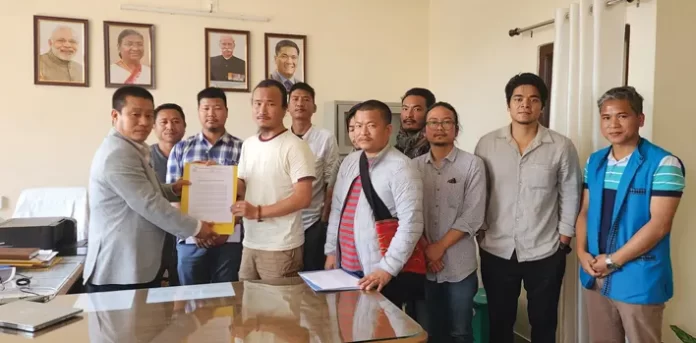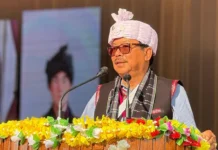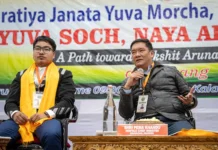PASIGHAT, 26 Feb: A delegation comprising representatives of several organisations on Monday submitted a representation to Arunachal Pradesh University (APU) Registrar Narmi Darang and Vice Chancellor Prof Tomo Riba here in East Siang district, urging the university to introduce master’s degree programmes in mass communication and psychology.
The delegation, comprising representatives of the Contemporary Communique Club (C3), the All Arunachal Pradesh Psychological Association (AAPPA), the
All East Siang District Students’ Union (AESDSU), the Adi Baane Kebang Youth Wing (ABKYW), and All Arunachal Pradesh Students’ Union (AAPSU) debate and symposium secretary Nun Pertin, was led by C3 chairman Prem Taba and C3 general secretary Dr Kombong Darang.
Citing the need for skilled media professionals and the lack of readily available postgraduate options in Arunachal, the C3 delegation highlighted how such programmes would equip students with skills to “navigate the complexities of the modern media landscape and contribute to the state’s intellectual capital,” it informed in a release.
Representatives of the AAPPA echoed similar concerns, stressing the urgent need for a master’s programme in psychology. They highlighted the growing mental health concerns in the state and the limited availability of postgraduate programmes in psychology in the state.
The programme, they argued, would help address the critical shortage of qualified mental health professionals needed to support the state’s population.
“The delegation was met with a positive response from the university administration. Both the registrar and the vice chancellor expressed their appreciation for the initiative and assured them that their requests would be considered ‘on priority basis’ during the upcoming academic and executive council meetings,” the release stated.
The university officials also sought cooperation from stakeholders like the AAPSU, the ABKYW, and the AEDSU in developing the APU further and catering to the evolving needs of the state, it added.





